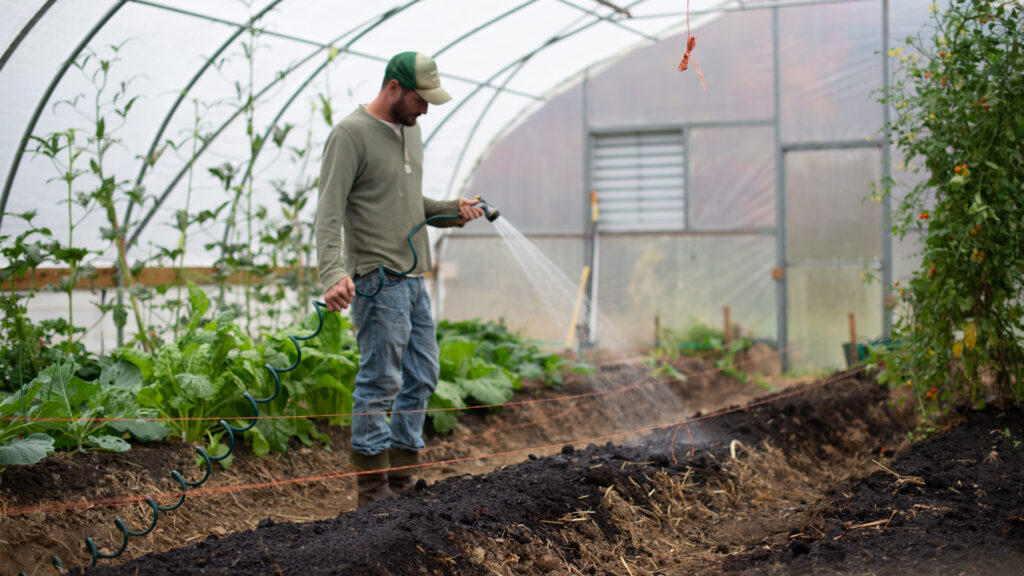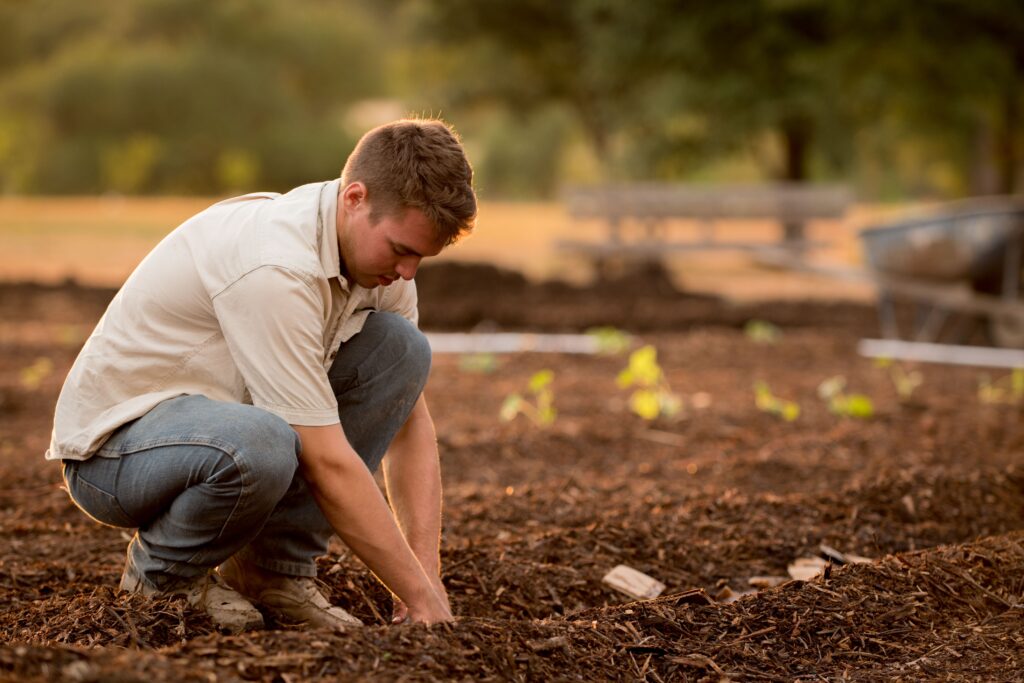By Phillip Hisey, Florida Nursery, Growers and Landscape Association

I’m a landscaper, and I plant climate solutions. I do it by utilizing drought-tolerant shrubs, using the latest technology for efficient irrigation, incorporating innovative ways to reduce energy consumption and providing a cooling canopy at every home.
For too long, Florida’s agricultural producers, which include the nursery and landscaping industry, have not been recognized as part of the solution to the challenges that climate is imposing on Florida. And why would we be? Until recently, we hadn’t really recognized ourselves for the contributions we make to reduce the impact Floridians have on the climate.
That’s changing. A producer-led movement called Florida Climate-Smart Agriculture is working toward identifying and measuring the things the landscape industry provides beyond food, foliage and forest – and how to incentivize even more of it.
For example, the market doesn’t compensate the company where I worked for 17 years, On Top of the World Communities, for the habitat it provides for gopher tortoises and scrub-jays, which goes far beyond what’s required. There’s no dividend paid to the company for the water filtration that our greenery and natural areas provide.
I’m fortunate to have had an employer that supports my work to reduce the impact our residential housing and commercial structures impose on the climate by building in resilience, emissions reductions and carbon sequestration in everything we do.
I’m no climate scientist, but I’ve seen over the course of my career that droughts and rains have become more intense. As an industry, we’ve responded with advances in sustainable landscapes, in part through plant material choices such as flax lily that hold up better against what seem like longer, hotter summers. I use a whole lot more of it now than I did when I began in this field two decades ago.

Efficient irrigation systems also contribute climate solutions. Using less water results in fewer emissions, which the Florida Nursery, Growers and Landscape Association believes to be a significant piece in the water quality puzzle.
Every home for which I provided the landscaping and irrigation at On Top of the World got a canopy tree to cast cooling shade that can mitigate rising temperatures, effectively reducing a homeowner’s own A/C usage. It also meets Florida Water Star criteria, which ensures it is as efficient as possible.
I won’t get too deep into the weeds here, but irrigation is a passion of mine, and I am constantly seeking ways to reduce it. Pressure-regulated heads keep breaks from becoming wasteful geysers. I monitor water use from a bank of computers in my office. I have taught a class in irrigation efficiency to residents of On Top of the World.
I see the payoff in educating residents as it results in a reduction of hours that the water treatment plant is pumping water out to thousands of homes. That, in turn, reduces the need for power generation and the emissions that result from it.
I need to learn a lot more, which is why I welcome experts from the University of Florida’s Institute of Food and Agricultural Sciences to use plots in the community to discover new ways to protect the planet with plants.
For example, Eban Bean of the UF/IFAS Department of Agricultural and Biological Engineering has done research that indicates that when we add soil amendments to our lawns, we can cut in half the time it takes to establish a lawn while increasing the rate at which it sequesters carbon. That’s good for profit and the planet, and Bean’s work has been influential in how we green up a new home.

As residential and commercial construction continues to increase in Florida there is a huge opportunity to build in resilience, conservation strategies and mitigation of human choices on our climate. I hope home buyers will recognize and choose communities where this is prioritized. And I hope policy makers will incentivize this social and environmental service that goes unrewarded by the market.
For me this is personal. I consider it my job to landscape and irrigate our way to a more climate-friendly Florida. It’s an approach that involves not just today’s generation of retirees, but also their grandkids and someday, mine.
Phillip Hisey is COO of Gruber McNeill Contracting Inc., and until recently was director of landscape operations at On Top of the World Communities. He is secretary/treasurer of the Florida Nursery, Growers and Landscape Association.
Learn more about VoLo Foundation, visit https://volofoundation.org/news/the-invisible-benefits-of-landscapes/
To read about Florida Climate Smart Agriculture, visit https://www.solutionsfromtheland.org/flcsa/
If you are interested in submitting an opinion piece to The Invading Sea, email Editor Nathan Crabbe at ncrabbe@fau.edu.



